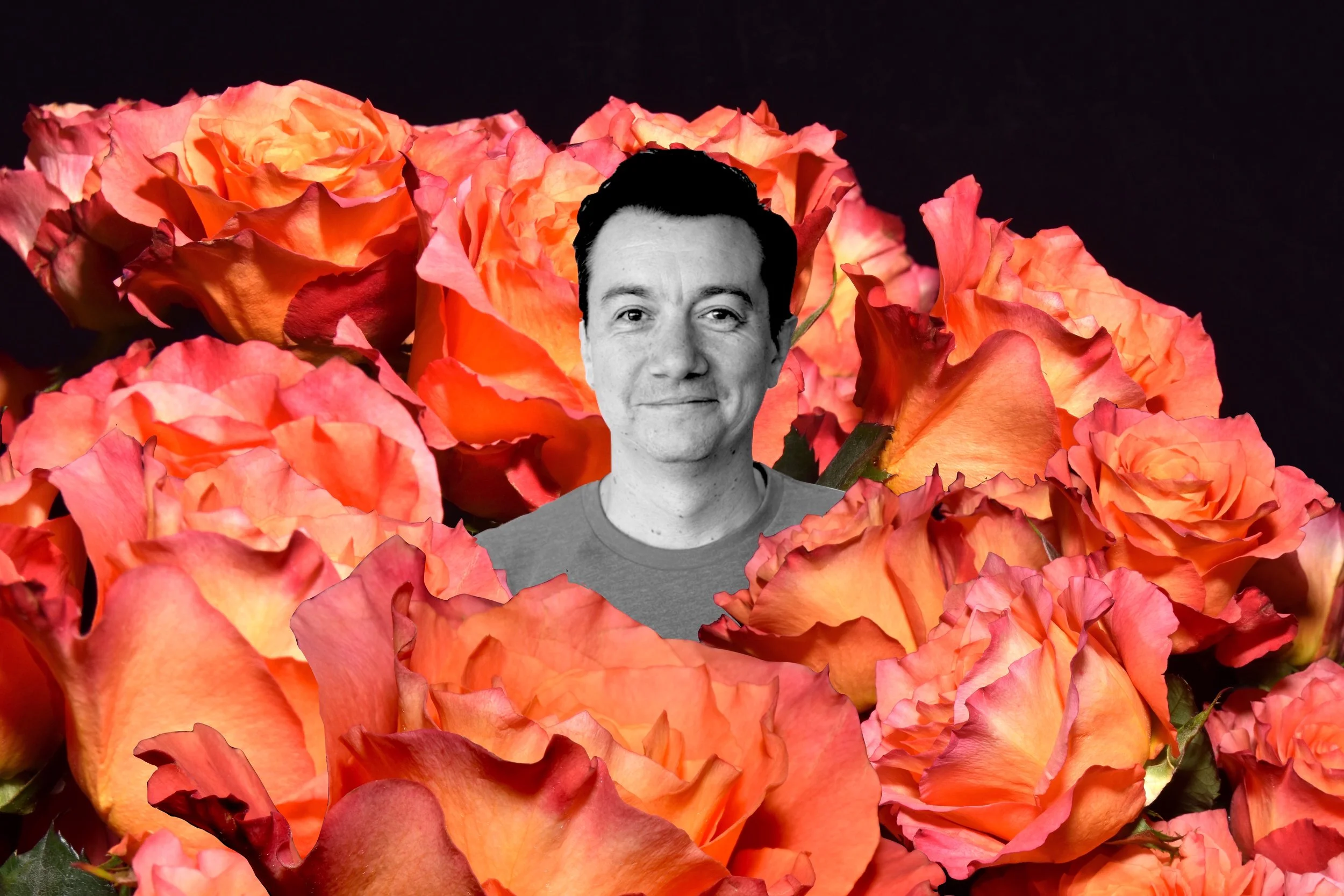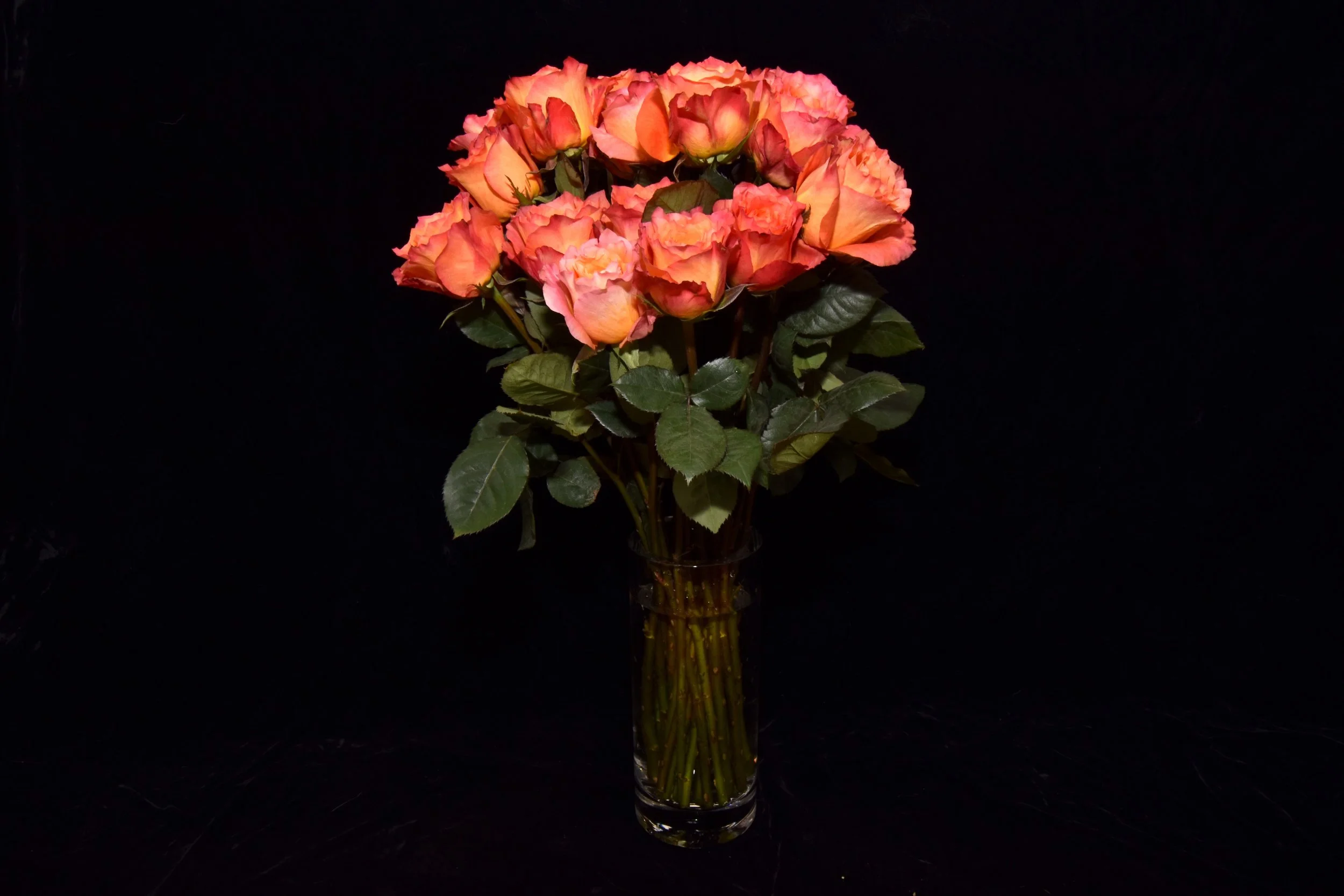The Expensive Choice That Landed This Flower Founder a Martha Stewart Contract
As the Company was Unprofitable, Juan Palacio Decided to Increase Costs by 20%
Juan Palacio, founder of BloomsyBox based in Miami. Photo collage: Nina Roberts; photo of Palacio courtesy of BloomsyBox.
Published on The Times of Entrepreneurship on November 4, 2021
Who doesn’t love to receive a box of fragrant fresh flowers, ready to be trimmed and arranged in a vase? Flowers are one of the simple joys in life, a luxurious moment of self-care or a visually and olfactorily stimulating gift to others.
Juan Palacio is the founder of BloomsyBox, a direct-to-consumer flower delivery company founded in 2015, based in Miami, Fla. BloomsyBox is primarily a subscription service. Customers can sign up for mixed bouquets or bunches of roses to arrive on a monthly or weekly basis, costing $45 to $55 per delivery.
When Palacio left Colombia for Miami 21 years ago, he started selling flowers for someone in the industry, despite having zero experience. “I actually liked it. I ended up being kind of good for it,” recounts Palacio of his first flower job. He eventually struck out on his own to sell flowers to hotels, flower shops and direct to consumers. BloomsyBox, profitable now with 23 employees and several distribution centers across the country, is Palacio’s second flower business. It launched in 2015.
A couple of years into running BloomsyBox, Palacio made a work trip to flower farms in South America that were certified by the global non-profit Rainforest Alliance. Farms get certified by following sustainable and labor protocols. In 2018 Palacio decided BloomsyBox would only use flowers from certified farms, despite his colleagues being less than enthusiastic about the 20% to 25% hike in flower costs.
Palacio spoke with Times of Entrepreneurship from Louisville, KY, where he’s starting a year-long stay to open a new BloomsyBox distribution center. He talked about making an unpopular decision, ignoring the “no’s” and how it led to a Martha Stewart flower contract.
Nina Roberts: First, explain how BloomsyBox works.
Juan Palacio: We’re 90% subscription, but we also do one-time bouquets. We started with mixed bouquets, then roses. We source flowers from multiple countries; 70% come from South America. We are also getting tulips from Poland and mainly orchids from Thailand; we have great relationships with farms in California too.
The whole concept is, how can we make these subscriptions the vehicle? So that customers can learn about flowers and discover new varieties. We work with flower breeders, so you’re not going to see some of our flowers at your local grocery store or flower shop. Recently, we launched our pet friendly subscription. We’re not going to ship anything that can be harmful for your pet.
NR: I’ve heard poinsettias can be poisonous.
JP: Yes, and lilies can be poisonous too. We also launched our plant subscription, we partnered up with a big plant grower in Ohio with a beautiful selection of plants.
NR: Who are your customers?
JP: Our subscriptions are mostly for customers’ homes, but we also have office customers. We have a lot of realtors who are giving our subscription to their customers as closing gifts.
NR: Okay, so what made you decide several years after launching BloomsyBox, to only use Rainforest Alliance certified flowers? Sound like business was going well, why rock the boat?
JP: When we first started, we were bootstrapping. I was buying and selling flowers from farms that I knew from before.
NR: When you had your previous flower business?
JP: Yes. I sold my shares of my first business in late 2009.
NR: Why, because of the economic crash?
JP: No! We were doing great because people were getting married and they didn’t want to pay a florist $30,000. Everybody has an aunt that knows how to deal with flowers.
I was tired and my business partners and I had different ideas about the direction of the business. I left the flower industry for some years; I consulted and worked for other companies.
NR: Okay, back to BloomsyBox and the certification.
BloomsyBox’s free spirit roses. Photo: Nina Roberts
JP: After probably the third year, I visited a couple of farms in Ecuador and Colombia that were certified. I’m like, “Wow, this is nice! How can I take what I’m seeing and convey the message to my customers?” And not be fake about it, or use it as a marketing hack, “Oh, you know, we’re sustainable.”
The certified farms are different. They need to go through multiple processes. The Rainforest certification is very strict with what is done with the farm’s residual water and organic residues that the flowers produce—there’s a lot of petals and leaves when you’re packaging flowers. They actually have very strict parameters and they visit the farms often to make sure their guidelines are being followed. There are other certifying entities, VeriFlora, FlorVerde, even Fair Trade, we buy flowers from those farms as well.
NR: Is the certification about sustainability?
JP: That’s one aspect of it. Each organization has slightly different standards, but all require farms to have good conditions for the workers, to treat the workers well. We look at four categories: controlling flower pests with the least possible environmental impact, water and waste management, fair wages and a healthy work environment and protecting the ecosystem of the farm.
NR: I imagine buying flowers from these farms is more expensive.
JP: It costs probably 20%, 25% more.
NR: And you thought it was worth it?
JP: Yes. I saw these farms were more organized, the workers take breaks. And in the end, if you like what you’re doing, you’re going to do a better job. It translates into the product; the consistency will be there. I started with one product, Alstroemerias, then roses. I quickly started my relationships with these farms that were certified. It was not as easy as saying, “Oh, I’m stopping today.” It took a month.
I have a silent business partner and he questioned buying flowers from these farms.
NR: Did he think you were crazy to willingly pay 20% to 25% more for flowers?
JP: Not to that extent, but he asked, “Are you sure of what you’re doing? Are you sure that you’re doing this for the right reasons? Is this the right time to do it?” Not that he didn’t agree, he just wanted to make sure.
NR: Where there any colleagues or co-workers who were enthusiastically supportive of the idea?
JP: No, no one supported me. The head of finance questioned me two or three times. “You know, we’re not in good shape. We were still burning money. Why don’t we do it later when we are at least breaking even?”
And visually, you wouldn’t notice a difference in the flowers. A person in our production department argued, “I can show you the exact same bouquet from a certified farm and non-certified, and you won’t notice the difference.” And I said, “I know, it’s true, okay, fine, but it’s my decision.”
I drew the line and didn’t move. I told them, “This is my decision, I’m going to make it and I’m going to assume the consequences, whatever they are.” It was a hard decision because we were losing money, we ate the increased cost in the beginning. From any perspective, it was not the right decision — financially. But, that’s actually a decision I’m very proud of.
Then, things started to happen.
NR: What happened?
JP: At the end of that year, we ended up signing an agreement with Martha Stewart to sell her roses for a branded line, direct to consumer. One of our main selling points was that we only buy from certified farms. We had three different meetings, did long presentations, I showed them pictures of the farms. I know some of our competitors were also bidding, but Martha Stewart signed with us, even though we were such a new company.
NR: So your decision paid off
JP: It did. And it’s still paying off. We are going to be doing around $20 million this year. And last year during the pandemic we grew more than 330%.
NR: Oh my God, that’s amazing. Has it remained at that level?
JP: No, I wish, [laughs], I mean, actually, the growth that we experienced last year, almost made us fail, it has stabilized a little bit more. This year has been a great year, of course not like last year, but it’s getting back to normal.
This interview has been edited for length and clarity.

